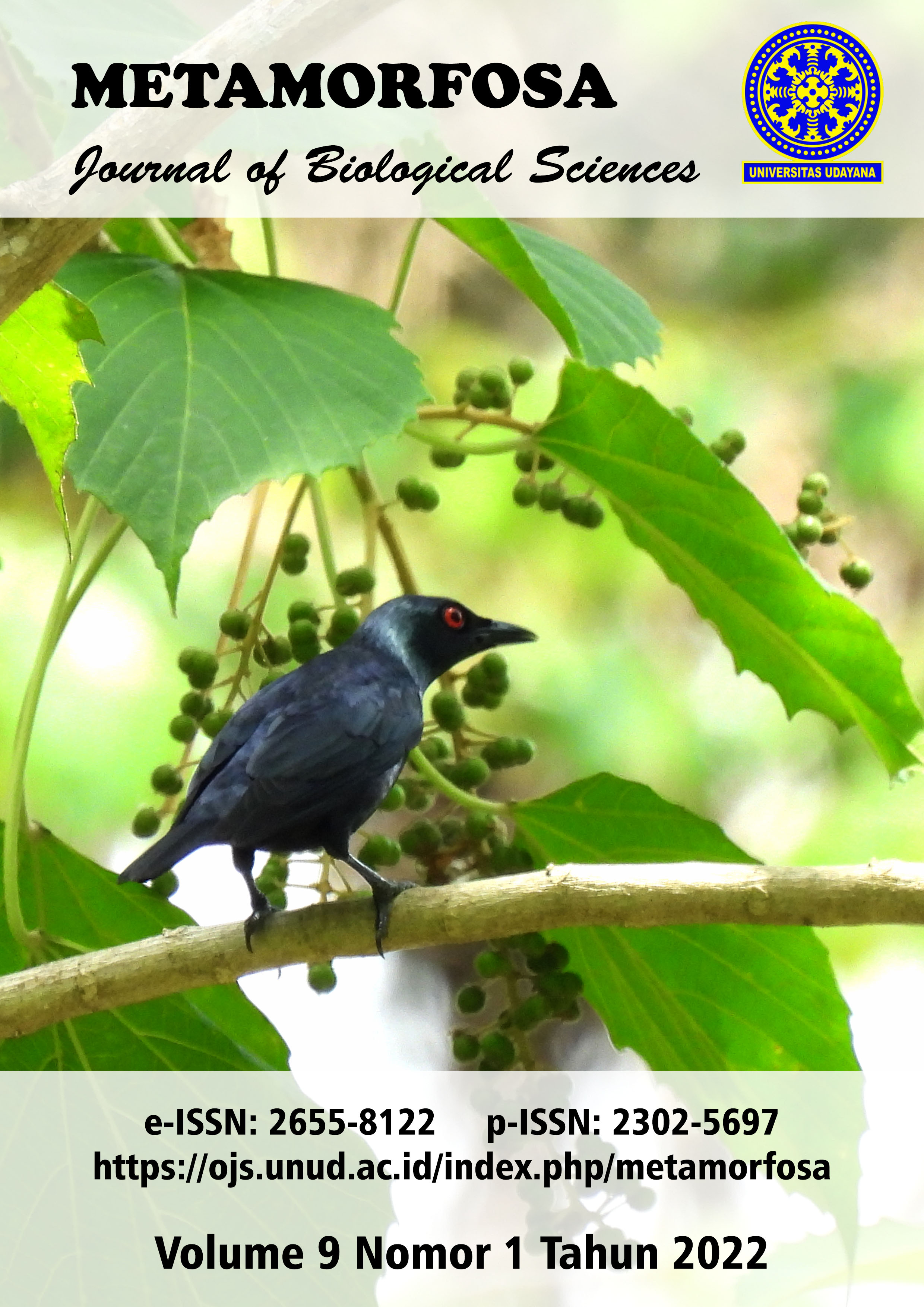The The Effectivity of Vitamin C as Neuroprotector on Mice (Mus musculus) Cerebral Cortex Induced by Acrylamide
Abstract
Acrylamide is a contaminant compound found in several types of food containing carbohydrates and processed food through frying or roasting at high temperatures. Acrylamide compounds could cause the formation of oxidative stress which could lead to neurotoxicity. This oxidative stress could be minimized by administering the antioxidant vitamin C. This study was conducted to determine the mice cerebral cortex histology, the mice cerebellum histology induced by acrylamide and vitamin C supplementation, and the most effective dose as a neuroprotector. This study used a completely randomized design (CRD) with 4 groups, namely K + (acrylamide 12.5 mg / kg BW); K- (NaCl 0.9%); P1 (vitamin C dose of 0.26 mg/animal /day + acrylamide dose of 12.5 mg/kg BW); and P2 ((vitamin C dose of 0.52 mg/animal/day + acrylamide dose of 12.5 mg / kg BW) and 6 repetitions so that the number of mice used was 24. The acrylamide and vitamin C solutions were administered orally, and acrylamide given for 20 days, while vitamin C was given 3 days before acrylamide induction until day 20. Mice were dissected at day 21, brain organs were collected for histological preparations by the paraffin method and Hematoxylin-Eosin staining. The qualitative data obtained were analyzed by One Way ANOVA and continued with the Duncan test. The parameters observed were necrosis in pyramid cells and glial cells. The results showed that vitamin C at dose of 0.52 mg/animal/day significantly repaired the damage in pyramid cells and glial cells induced by acrylamide.





